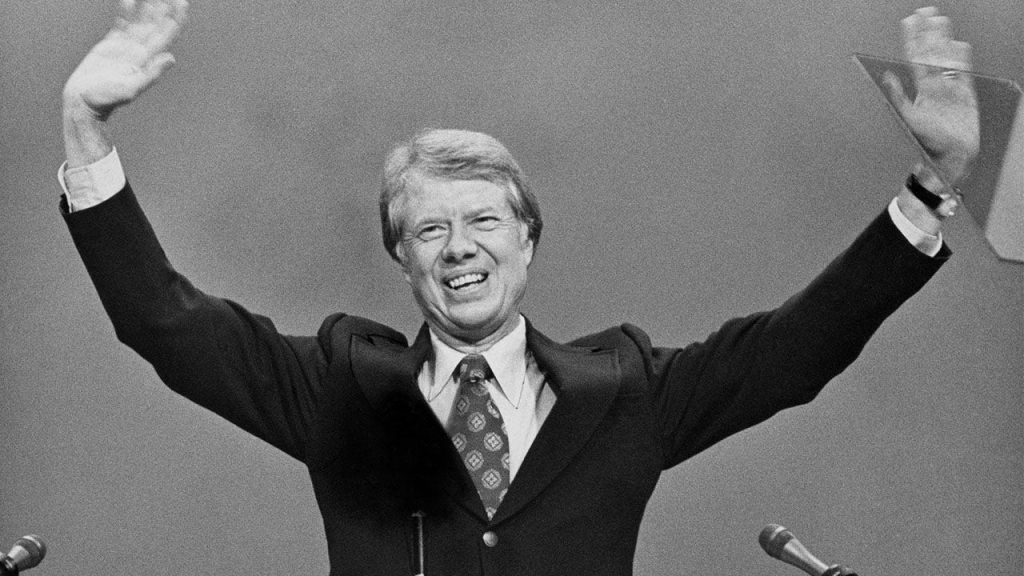Jimmy Carter’s life, spanning a century, is a quintessential American story, marked by both the triumphs and tribulations of public service and a profound commitment to humanitarianism. From humble beginnings in rural Georgia, devoid of electricity, he rose through the ranks of the US Navy, navigated the complexities of the Cold War as President, and ultimately earned global recognition for his relentless pursuit of peace and justice, culminating in the Nobel Peace Prize. This journey is a testament to his unwavering determination, his deep-seated faith, and his unwavering belief in the power of human kindness.
Carter’s presidential victory in 1977 was an unexpected triumph. A peanut farmer and former one-term governor, he defied expectations by securing the Democratic nomination and then the presidency, defeating incumbent Gerald Ford. His campaign, characterized by religious conviction and surprisingly conservative stances on certain social issues, resonated with a nation grappling with the aftermath of Watergate, the Vietnam War, and a stagnant economy. However, his outsider status and populist appeal created tension within the Democratic establishment, hindering his ability to forge strong alliances and effectively govern. This internal struggle contributed to a tumultuous single term marked by both notable achievements and significant challenges.
Despite facing considerable political headwinds, Carter achieved notable successes in both foreign and domestic policy. His landmark achievement, the Camp David Accords, brokered peace between Egypt and Israel, a testament to his patient diplomacy and unwavering commitment to peace in the Middle East. Domestically, he initiated deregulation in key industries, established the Departments of Education and Energy, and created FEMA, demonstrating a commitment to modernizing government and addressing emerging national needs. His conservation efforts, appointing record numbers of women and minorities to federal positions, and furthering diplomatic relations with China and Latin America broadened the scope of his legacy.
However, Carter’s presidency was also plagued by economic woes, including double-digit inflation and long gas lines, which significantly eroded public confidence. The Iran hostage crisis, culminating in a failed rescue attempt and the tragic loss of American lives, further undermined his administration. His perceived lack of communication skills and a tendency towards dour pronouncements, exemplified by his “Crisis of Confidence” speech, contributed to a sense of national malaise and ultimately led to his decisive defeat in the 1980 election against Ronald Reagan. While his speech aimed to address the nation’s spiritual and moral decline, its pessimistic tone resonated negatively with many Americans, who longed for a more optimistic vision of the future.
Carter’s post-presidency, however, became the defining chapter of his life. Through The Carter Center, which he founded with his wife Rosalynn, he dedicated himself to advancing democracy, public health, and human rights globally. The Center’s pioneering work in election observation, monitoring over a hundred elections worldwide, fostered transparency and accountability in democratic processes. Its public health initiatives, most notably the near-eradication of Guinea worm disease, demonstrated a commitment to tackling neglected tropical diseases and improving the lives of millions in developing nations. This unwavering dedication to humanitarian causes earned him the Nobel Peace Prize in 2002, solidifying his legacy as a champion of peace and justice.
Jimmy Carter’s life is a complex and multifaceted story. His presidency, while marked by challenges and ultimately ending in defeat, laid the groundwork for a remarkable second act. His post-presidential work transcended the political realm, demonstrating a profound commitment to serving humanity. He will be remembered not just for his time in the Oval Office, but for his tireless efforts to build a more just and peaceful world. His legacy is one of unwavering integrity, deep faith, and a relentless pursuit of a better future for all, solidifying his place as one of the most impactful ex-presidents in American history.

